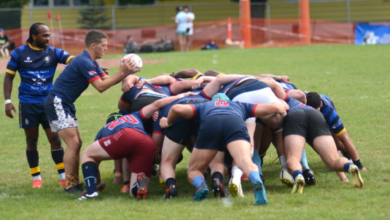Introduction
The biggest misconception you can have is that poker is a game based on luck. Becoming a successful professional poker player requires long hours of dedicated study, practice, and reflection –– a route not for the faint-hearted. You may not need to aim for the stars, but even becoming a better poker player requires hard work and determination. If done properly, pushing tables at mid-stakes can earn you up to $100 per hour, realistically. However, many of us often unknowingly self-sabotage our poker plays. Nevertheless, if you’re curious about how to improve your gameplay, read on more to find out!
Practice Makes Perfect
Even if you don’t have an impressive background in poker, you’re just as able to succeed in the end –– with sufficient practice, of course. After all, poker deals with a set deck of cards, which only have so many patterns and tricks that you can experiment with. This means that it’s possible to gain a good understanding of the different kinds of winning gameplays and draw inspiration from them.
For example, I play Texas Holdem at a site like this where three exposed cards are shown first to the players. From there, players either fold, check, or raise their bets, depending on the kinds of hands they have. Here, you’re able to start noticing and picking up on your opponents’ patterns –– and thus have a gauge of how good their hands are. This allows you to strategize your next moves carefully, and decide whether you’re going to fight, or retreat. However, this doesn’t come naturally –– it takes time, experience, and failure for poker players to read their opponents accurately. If you’re determined to become a better poker player, it’s important to learn from your previous mistakes, study professional gameplays, and garner advice from your poker peers. You must be prepared to live, breathe, and think poker.
Developing A Schedule
No one is immune to procrastination –– not even the most dedicated, passionate, poker player. However, what you decide to do in face of procrastination is what will impact your gameplay. If you don’t force yourself to sit down and get work done, you won’t be making significant progress.
Thankfully, there are several techniques and ideas that you can adopt to keep your momentum going. Firstly, we recommend developing and adhering to a schedule. This will help keep your time management in check and your priorities in order –– taking on tasks haphazardly will only end up setting yourself for failure. Plus, we are encouraged to exercise restraint from becoming overly ambitious in the beginning. Plan out your day properly and set realistic, achievable goals. Trust me, you’ll feel more satisfied over the little things, and have more time to complete projects.
However, it’s still important to set aside time out for relaxation and catching up with loved ones. Adhering to an overly-rigid schedule will suck away all your joy and energy. Cramming poker matches and studying sessions throughout the day will end up killing your passion sooner than you may think. If you still face problems developing a schedule, try creating a technique that builds momentum. Setting miniature goals to hit whenever you study or train for poker is useful –– for example, aspiring to hit 15 minutes of a theory video, or playing 100 hands worth of poker.
Create A Conducive Environment
If you don’t learn how to keep your composure and state of mind under control, you won’t be able to win many matches –– even if you’re armed with the best preparation schedule. Poker is a battle of strategy and mental strength; you have to maintain the right mindset, under the right conditions, to truly flourish.
We recommend mapping out your study plan at least one week in advance. This is to set certain goals clear and prevent feelings of frustration from piling up, especially when things aren’t going your way. You should also write down a list of pointers to improve on, and number them based on level of importance. Creating a task list of items allows you to clearly define a direction and goal for your gameplay to head towards.
It’s important to ensure that you get rid of all potential distractions during your preparation period and throughout the game itself. Turn off your phone, close the blinds, and gently remind your family or roommates to refrain from disturbing you –– there’s no room for tolerance during poker.
Keep Your Composure
Now that you’ve created a suitable environment to study and play within, it’s time to learn how to maintain your composure and emotions during the game itself. Because poker is a game of strategy, every successful player knows how to read your opponents’ facial expressions, gestures, and body language. Your body lets on more than you intend to show –– even the most minute details can reveal the kinds of patterns you currently hold on deck.
The best way to have the ideal ‘poker face’ is to learn how to compartmentalize and hide your feelings. The most common method that players end up giving their hands away is to get angry –– otherwise known as the infamous ‘poker tilt’. Just as you’re sizing up your opponent, so they are with you. Anger is the hardest emotion to control; a slight eyebrow arch, a clench of teeth, and a shake of a head are enough to give yourself away. Furthermore, anger clouds your decision-making process and causes you to make rash choices. This may end up in you becoming over-aggressive, desperate, and even emotional.
How can I not get angry when I lose, you might ask. The best way to conquer your emotion is to understand that losses aren’t final. You can’t expect to win all the time! Acceptance is the first step to embracing calmness. Once you’re at peace with losing, having angry moments during the game won’t phase you one bit.
Better Bankroll Management
No discussion on becoming a better poker player is complete without mentioning bankroll importance. Although this is fairly straightforward, it is one of the least followed and understood by poker players. Everyone plays poker in hopes of making a profit and gaining big bucks. However, it is often not the case. The variability in poker can sometimes cause players to lose (and earn) tremendous amounts of money; it is in this uncertainty that many players become addicted to the adrenaline.
If you find yourself losing more money than you should, it’s probably a sign that your gameplay needs to change. Rather than rushing into each high-stake match, re-evaluate your finances and choose games that better match your skills and expectations. Don’t force yourself to meet the minimum buy-in amount if you know your chances of winning aren’t high. One good way to accumulate your finances is to start with lower buy-in tables and hone your gameplay first –– even if you lose, it won’t hurt as much. Once you’re ready to move on to a larger bankroll, select longer and larger games to play.
Conclusion
With these four steps, we hope that you’ve gained a better understanding of how to become a successful poker player. Remember, poker is a marathon, not a sprint. Make sure your efforts are consistent, and you’ll be able to reap your rewards soon.





